Residential Special Training Centre for former child labourers, Madhya Pradesh, India
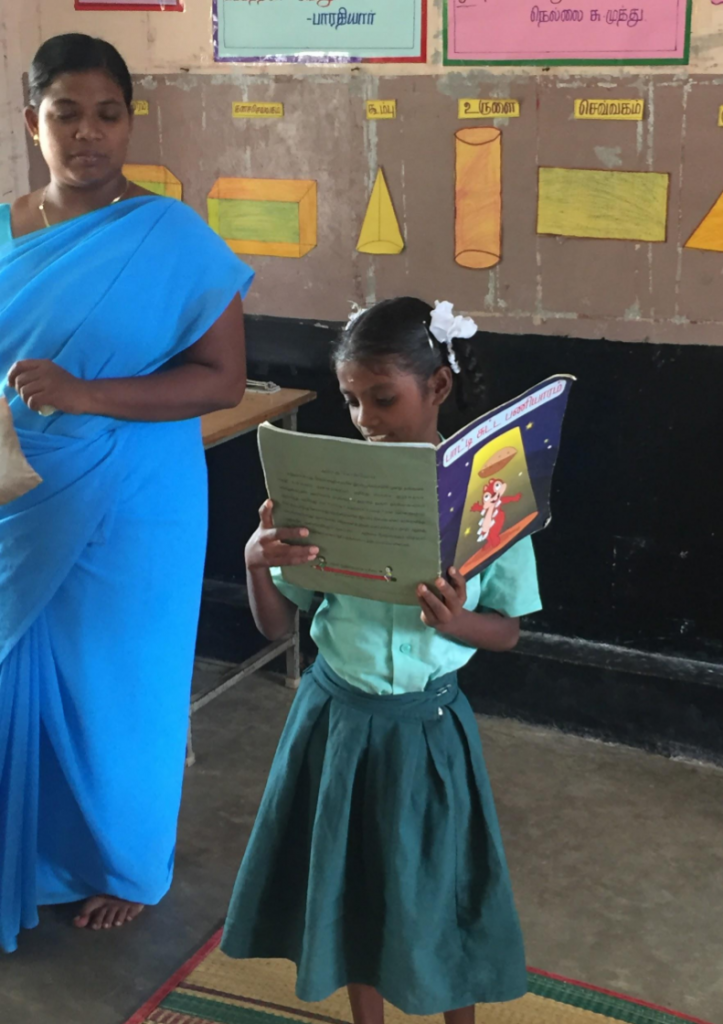
The goal of this project is to open a Residential Special Training Centre to end child labour through education, offer child labourers tailored educational, physical, mental and emotional support, and ultimately to reintegrate the children into public schools.
Context and Issues
This situation affects their physical, mental and emotional well-being. Unable to attend school, they lose not only the opportunity to gain an education, but the precious years of their childhood as well. The apparently obvious choice of placing these children straight into the traditional educational cycle always ends in failure with a lack of attainment and adaptation. Our Solution and its Relevance
The Special Training Centre has proven to be the most appropriate place as their primary objective is to rebuild social bonds and reduce the children’s intellectual and physiological developmental delays. To this end, special educational materials are used and which are designed specifically for these children, who have lost years of their education. The environment is safe, comfortable, healthy and enjoyable. The integration of children goes through 3 steps:
It is a 2-month phase to allow children to play, adapt to their new environment, to the teachers and slowly to new rules. The academic level is evaluated, children are in contact with other children with similar background and a specific attention is paid to help them heal from emotional imbalance. Academic activities This second step allows the children to familiarise themselves with the concept of education. Governmental academic classes These classes are given so that children can follow the curriculum taught in the country, thanks to activity-based learning. Recreational activities play an important part in the programme so the education process is playful. . A measurable and lasting impact
Pupils who are still experiencing difficulties, are given guidance and are supported by social workers from our local partner Hand in Hand India. The children’s progress is assessed using the method of the Government of Madhya Pradesh and its ‘Education for All’ programme which supports the project; this programme follows all the children of the Special Training Centre until they reach the age of 18. Higher education support is offered to the most deserving pupils who experience financial difficulty. This continued monitoring is possible thanks to the presence of a ‘social mobilisation team’ working in the district. This is the 8th Special Training Centre opened by Hand in Hand India. The first 7, have demonstrated their success: – 100% of the children integrated into a public school following their time at the centre; – Up to 90% of the children finish their secondary education and can therefore continue their studies or attend a vocational training. WE NEED YOUR HELP TO ENABLE CHILDREN TO GO BACK TO SCHOOL AND ESCAPE PRECARIOUS AND DANGEROUS CHILD LABOUR ! |
Last updated: November 2018

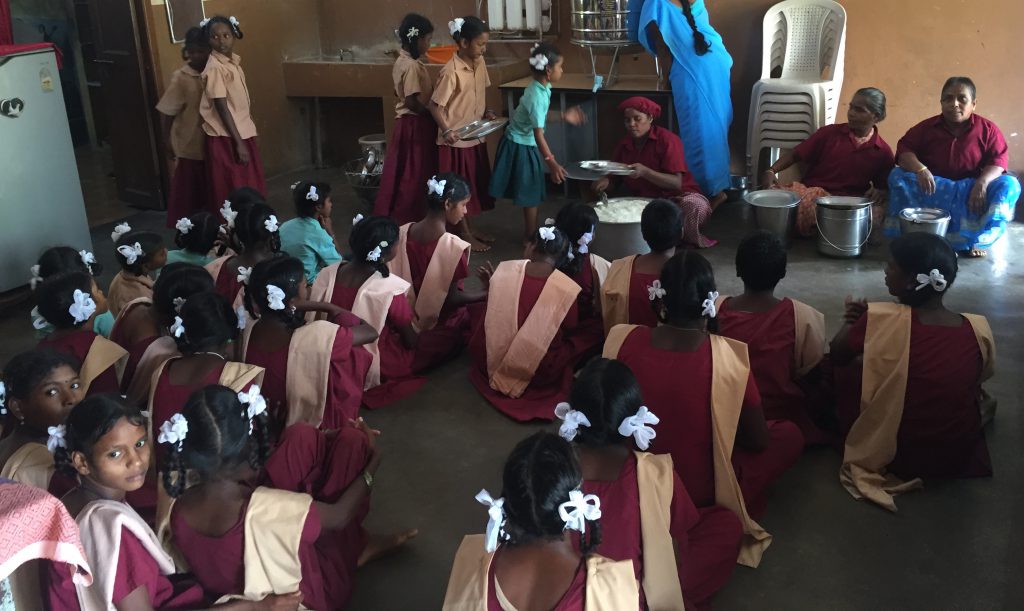 India is situation level ‘red’ under Humanium’s Realisation of Children’s Rights Index, highlighting the precarious situation of Indian children. India is the South-East Asian country with the highest number of child labourers and more than 30 million children aged six to thirteen, do not follow the school curriculum. Children in rural areas are more vulnerable than children of the same age in cities and girls have a higher risk of not attending school. The situation is even worse for the children of indigenous tribes and castes. The suffering of child labourers in sectors such as weaving, rice mills or stone quarries is significantly underestimated. They are often diagnosed with serious physical and educational developmental delays and the trauma of lost childhood and feelings of permanent insecurity are very difficult to overcome.
India is situation level ‘red’ under Humanium’s Realisation of Children’s Rights Index, highlighting the precarious situation of Indian children. India is the South-East Asian country with the highest number of child labourers and more than 30 million children aged six to thirteen, do not follow the school curriculum. Children in rural areas are more vulnerable than children of the same age in cities and girls have a higher risk of not attending school. The situation is even worse for the children of indigenous tribes and castes. The suffering of child labourers in sectors such as weaving, rice mills or stone quarries is significantly underestimated. They are often diagnosed with serious physical and educational developmental delays and the trauma of lost childhood and feelings of permanent insecurity are very difficult to overcome.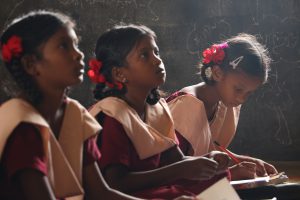 Since 2017, Humanium has mobilised to propose an alternative to these children by creating 3 non-residential special training centres currently hosting 80 children. After months of paperwork, the government of Madhya Pradesh has given its authorisation to open a residential centre where 50 girls could be welcomed from July 2019. This project is an invaluable occasion to change the life of these children, but also to eradicate child labour in this state where this practice is still very common.
Since 2017, Humanium has mobilised to propose an alternative to these children by creating 3 non-residential special training centres currently hosting 80 children. After months of paperwork, the government of Madhya Pradesh has given its authorisation to open a residential centre where 50 girls could be welcomed from July 2019. This project is an invaluable occasion to change the life of these children, but also to eradicate child labour in this state where this practice is still very common.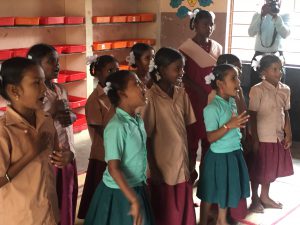 The socialisation phase
The socialisation phase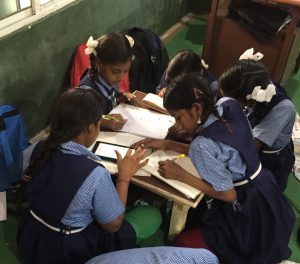
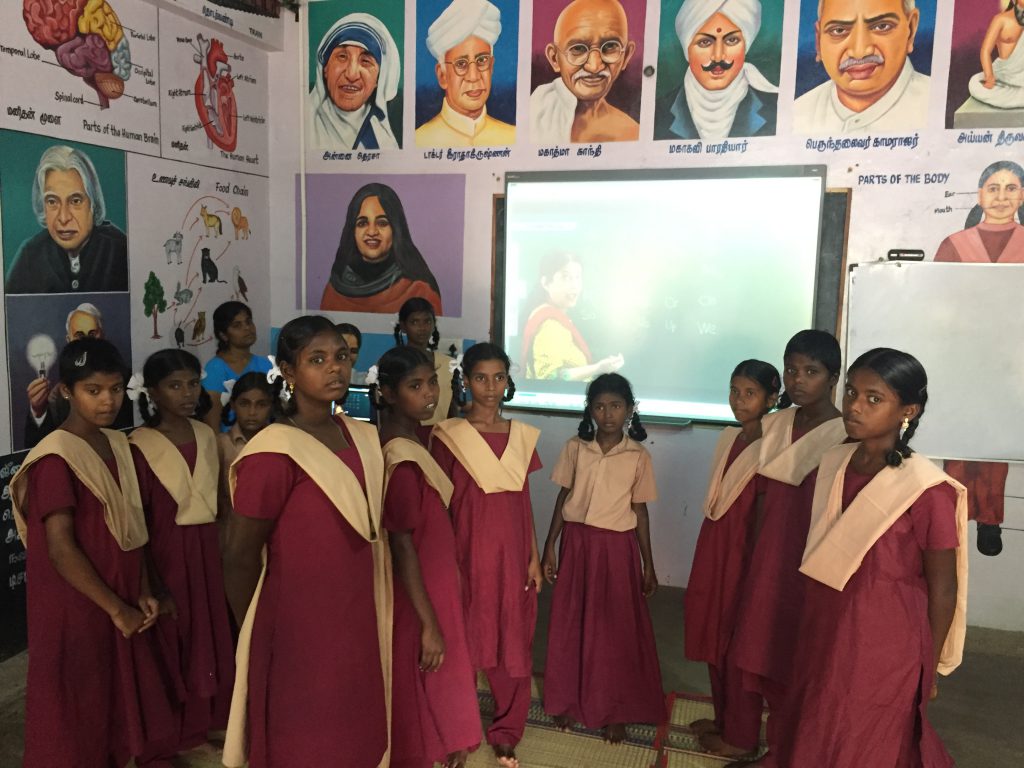 After a stay of 18 to 24 months, 95% of pupils reach the level required to integrate them into a public schools.
After a stay of 18 to 24 months, 95% of pupils reach the level required to integrate them into a public schools.